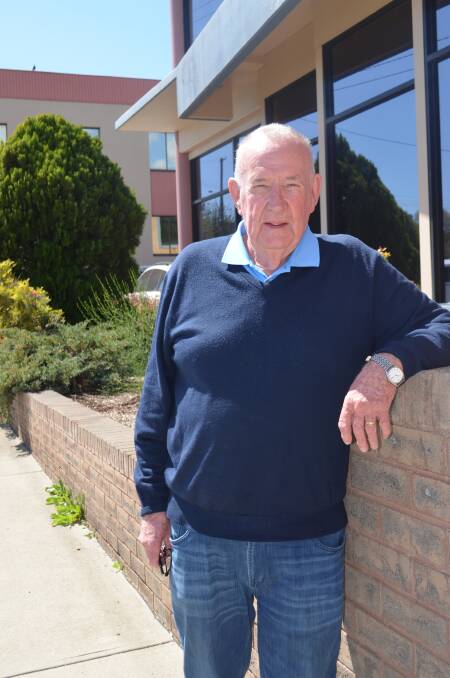
There is no excuse for Tamworth men not to be checked for prostate cancer, and the good news is that “it no longer means a finger in the bum, necessarily.”
Subscribe now for unlimited access.
$0/
(min cost $0)
or signup to continue reading
September is Prostate Cancer Awareness month, and president of the Tamworth support group Brian Burgess said that all men over 50, or 40 with a family history, should at least be having the conversation.
Prostate cancer kills more men in Australia than breast cancer kills women, with one in seven men developing the disease.
“Tamworth has got two really good urologists, a designated cancer hospital, a prostate support nurse, a counsellor, a radiation facility, a robotic prostate surgeon, and an active support group,” he said.
“We are in an excellent position, so there really is no excuse, even if you just have a chat to the nurse.”
This year the focus of the awareness month is on busting three myths, the first being the big one that a digital rectal exam is no longer the first line test for prostate cancer.
Read more:
Instead a simple blood test can be used which can show six varying degrees of risk and diagnosis.
The second myth is that prostate cancer is no longer a big deal, so a GP visit isn’t always necessary, and the third myth is that any diagnosis automatically needs surgery, which is just not true.
“We are really looking to get wives and partners involved, because they are generally the health managers in a family,” Mr Burgess said.
“A lot of men resist going to the doctor for anything, but we want to get the word out to go and get tested.
“Treatments are getting better every year so early diagnosis is critical.”
Symptoms of possible prostate cancer can be easy to detect, although in some cases they can also be subtle.
They include problems passing urine, including a frequent urge to urinate, even when the bladder is empty, as well as stinging, burning or pain during urination.
Other symptoms can include pain in the lower back, lower abdomen, or groin, as well as getting chills in high temperatures and painful ejaculation.
There are over 20 people in the local support group, who meet once a month, but also offer a lot more.
“The support group is here to help people through that journey and direct them to different services, or advice,” Mr Burgess said.

